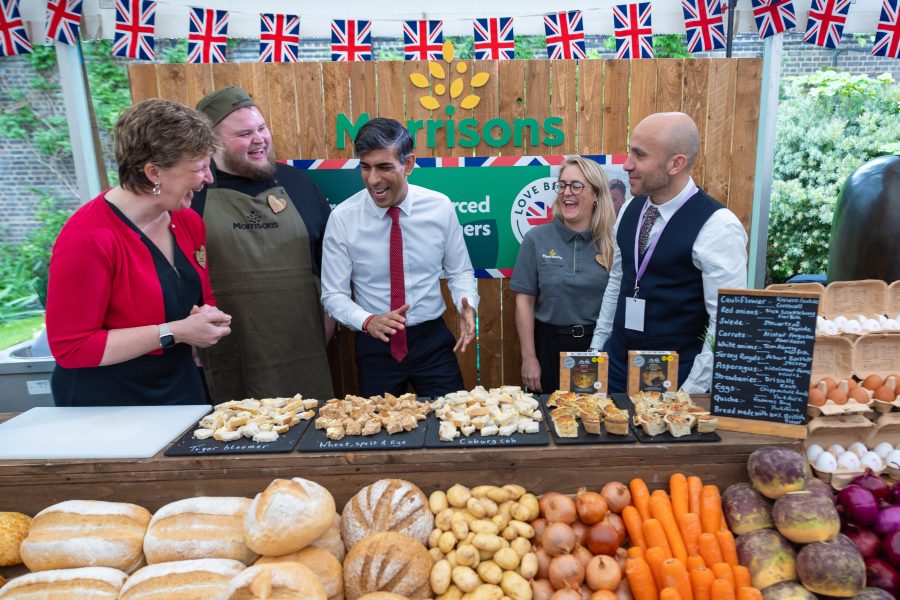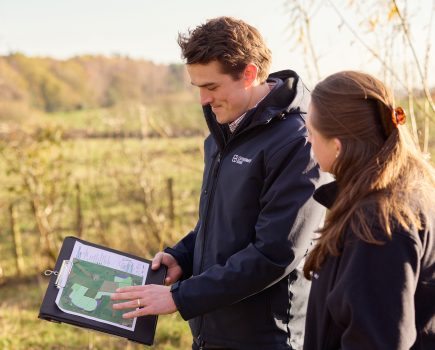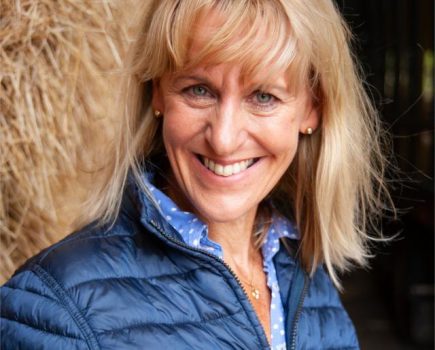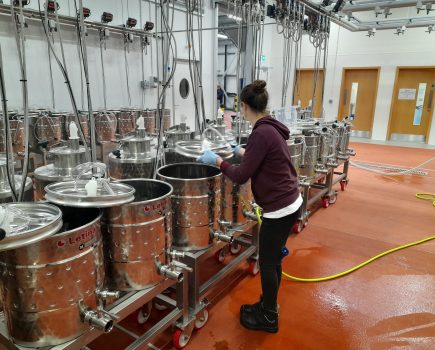While government initiatives to support farming following this year’s Farm to Fork Summit in Downing Street have been welcomed by the industry, the NFU has warned that it may be “too little too late” for some.
NFU President Tom Bradshaw said many of the announcements, which included a commitment to a long-awaited food security index, were “extremely welcome”, but said the crisis in farming was so severe “that some farmers and growers believe they may not survive long enough to benefit from today’s announcements”.
He said the NFU had been particularly pleased to see progress on long-term strategic ambitions around the food security index and measures to boost the production of more British fruit and vegetables, adding: “We are pleased that the Government has taken on board our calls for a bigger and more accessible replacement for the EU Fruit and Veg Aid Scheme, and a commitment to legislate to improve contractual relationships.”
But he went on: “We cannot forget that our members have experienced the wettest eighteen months since 1836, including devastating flooding, and many are facing an acute short-term crisis.”
Pointing out: “The NFU’s recent confidence survey revealed just how tough it is out there currently”, Mr Bradshaw said the union wanted to see “core standards for food imports” included in the Government’s long-term plan for agriculture.
Alongside the food security index, the Government announcements included a new blueprint to increase domestic production in the UK horticulture sector and further support for farmers and growers affected by wet weather.
The Government has agreed to maintain the annual farming budget at £2.4 billion and introduced a £427 million grant package to foster innovation and productivity as well as expanding the seasonal worker visa route to help growers recruit the workers they need.
Up to £30 million will be allocated for precision breeding technologies to enhance crop yields and resilience and there will be additional funding to help farmers adopt renewable energy solutions to promote sustainability and reduce farming’s carbon footprint.
The package of measures, unveiled by Prime Minister Rishi Sunak, included a blueprint setting out how industry and government can work together to increase domestic production and drive investment into a sector already worth more than £4 billion to the UK economy.
The plan includes ensuring the sector has access to affordable and sustainable energy and water, cutting planning red tape to make it easier and quicker to build glasshouses, and boosting innovation. The announcement said DEFRA was looking to double to £80 million the amount of funding given to horticulture businesses through the EU legacy Fruit and Vegetable Aid Scheme which will be replaced from 2026.
The Prime Minister also outlined further support for farmers affected by this winter’s wet weather and said there would be £75 million to help internal drainage boards recover from the winter storms and modernise and upgrade assets that support resilience for farms and rural communities.
The Government also announced £3 million to support new and mobile abattoirs through the Farming Investment Fund, building on the Small Abattoir Fund which opened last year.
Environment Secretary Steve Barclay, who said food security was “vital to our national security”, commented: “Today’s announcements will turbocharge the growth of our horticultural sector, supporting the building of cutting-edge glasshouses and innovative farming techniques to put British fruit and vegetables on our plates all-year round.”
Farming Minister Mark Spencer, meanwhile, promised that the Government would “always back British farmers” and confirmed: “Food production is the primary purpose of farming, and our farmers and food producers work hard to keep the nation fed, despite challenges including flooding.”
Tom Bradshaw was quick to pick up on the goodwill messages, pointing out: “While we are pleased to see the Prime Minister and DEFRA saying UK food security is vital to our national security, we need actions in the short-term that underpin that statement, in order to rebuild confidence and resilience so farming businesses can continue producing food.”
Chair of the Environment, Food and Rural Affairs Select Committee Sir Robert Goodwill welcomed the summit, claiming it presented “a significant opportunity to tackle the serious issues facing farmers and the food supply chain” and adding: “The farming sector works tirelessly to feed the nation and protect its natural environment.”
Sir Robert also welcomed Government plans to appoint a tenant farming commissioner “who will provide a strong voice for tenant farmers throughout the country”, pointing out: “Tenant farmers form an essential part of our farming communities, and it is essential that their rights are protected and respected.”
The summit was also welcomed by the Country Land and Business Association (CLA), whose President Victoria Vyvyan called on the Government to “go a step further by developing a robust and bold plan for the rural economy as a whole”.
Also joining the queue to be upbeat was The Fresh Produce Consortium (FPC), which said it was “positive about the opportunity to enhance UK fresh produce production and food security” and added that the initiative “reinforces the need for a balance of imports to meet the diverse eating habits of our nation”.
Executive chair of BAPL Ali Capper said top fruit growers would be “absolutely delighted” with the announcement and “especially heartened by the announcement of up to £10m for English orchard growers to access equipment, technology and infrastructure”. She added: “The future of British orchards and the growth of British apple and pear volumes is definitely looking brighter today.”
Soil Association Certification chief executive Dominic Robinson represented organic and nature-friendly farmers at the summit and championed the vital role of wildlife and soils in delivering food security.
Calling for “more, long-term support for farmers to shift to resilient practices”, he said: “The Government’s push to back British farmers is welcome – they must now back British wildlife and healthy diets to deliver a sustainable, secure food system in the UK.”







